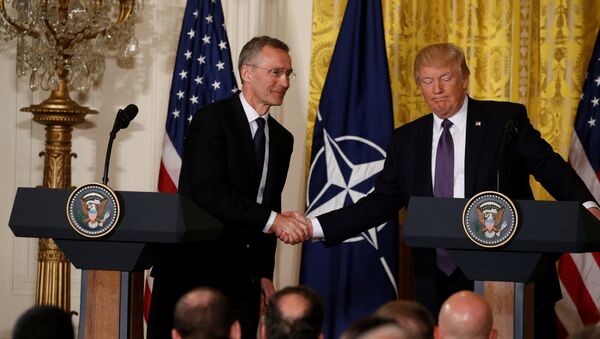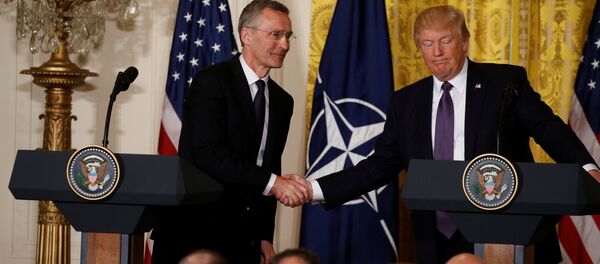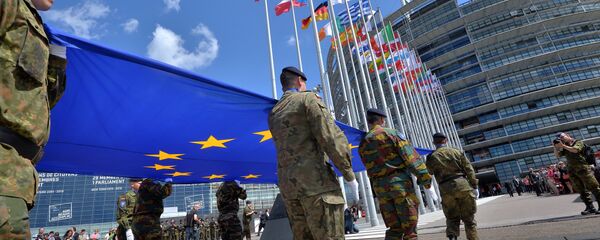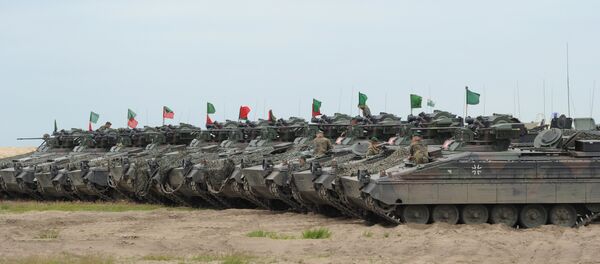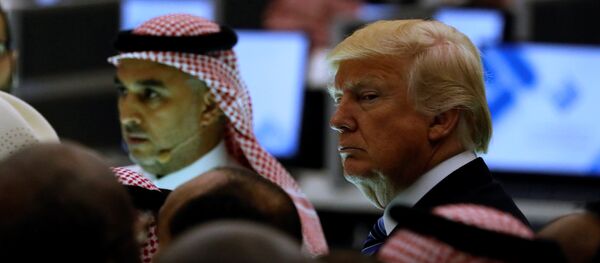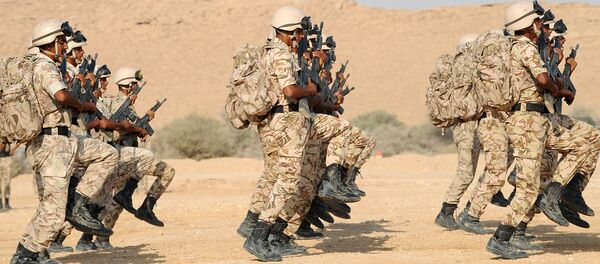Moreover, the participants of the upcoming summit will discuss joining an international anti-Daesh coalition. In a recent interview with Bild, NATO Secretary General Jens Stoltenberg said that the alliance would not participate in combat actions in Syria and Iraq.
"However, Trump may not like such a scenario since Washington has set a course to re-establish American leadership in the Middle East," political commentator Alexander Khrolenko wrote in an op-ed for RIA Novosti.
NATO’s strategy towards Russia will also be discussed, including increasing measures to boost the alliance’s presence from the Barents Sea to the Black Sea.
NATO Sets to Expand
Poland stands for NATO expansion to the Balkans and Eastern Europe. Earlier, German Chancellor Angela Merkel confirmed Berlin’s commitment to strengthening NATO’s eastern flank.
In a recent interview with the Russian newspaper Rossiyskaya Gazeta, Russia’s envoy to NATO Alexander Grushko noted: "The leaders of NATO have deployed their troops and military equipment to areas where they are not allowed to stay, according to the 1997 NATO-Russia Founding Act."
According to Grushko, there is every right to consider this an attempt to mount military and political pressure over Moscow.
"Despite the fact that Stoltenberg said that Russia should get along with NATO expansion, Moscow always responds to force with force. Brussels should realize that its saber-rattling near Russia’s border will have a negative effect on security. Russia is not seeking confrontation with NATO.
De-escalation would be more productive, but it seems that no one takes it seriously. As a rule, the West tends to resolve the geopolitical problems it creates," the author pointed out.
Alliance in the Middle East
The new alliance is expected to be headed by Saudi Arabia, and its core will include the United Arab Emirates (UAE), Egypt and Jordan. There are also dozens of potential members of the new organization.
Khrolenko suggested that the new alliance would soon present its charter and a joint military force.
"Washington will use this project as a counterbalance to the current de-facto alliance between Russia, Iran and Syria in the Middle East. At the same time, such an organization will be a kind of response to China’s growing influence. If the project works out it is possible that a similar organization will be established by Washington in Southeast Asia," he wrote.
"From Lebanon to Iraq and Yemen, Iran funds, arms and trains terrorists, militias and other extremist groups that spread destruction and chaos across the region. […] For decades Iran has fueled the fires of sectarian conflict and terror," Trump said at the summit in Riyadh.
"What we’re witnessing now is another attempt by the US to shift responsibility. Similar accusation were made long before the US and NATO military operations in Iraq and Libya. The basis of Washington’s world order remains the same. Trump has given up his plan to normalize ties with Russia. Instead, Washington’s geopolitical momentum is bringing NATO back in the game," Khrolenko concluded.
